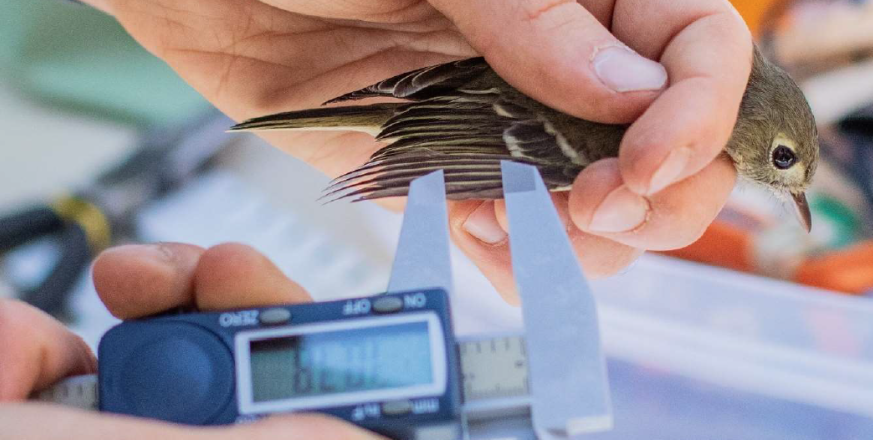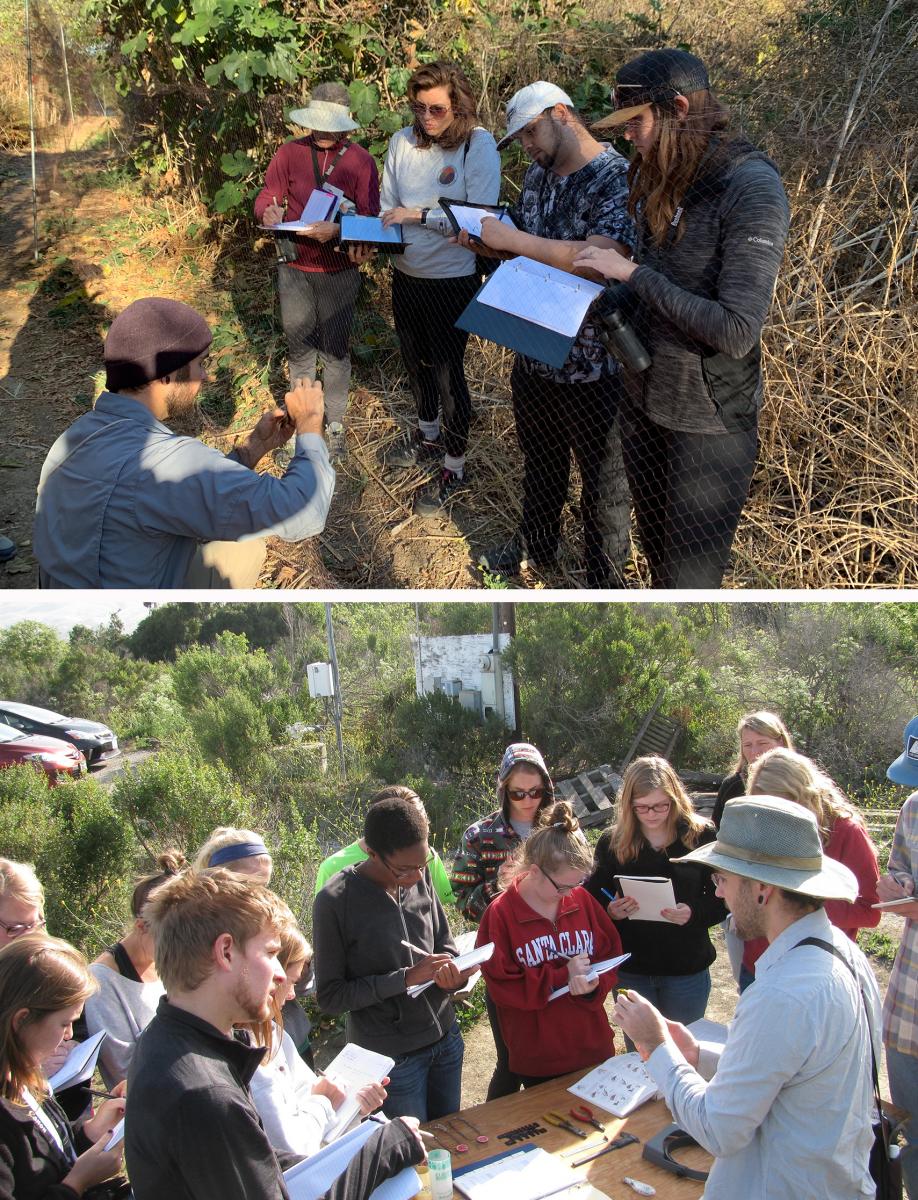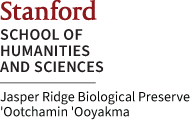Jasper Ridge and collaborating institutions awarded NSF grant to plan Research Coordination Network for avian ecology studies

Photo above from David Tattoni’s bird-banding research at Jasper Ridge by Peter E. Hart.
Thanks to an incubator grant from the National Science Foundation, Jasper Ridge Biological Preserve will be working with several partner institutions to plan the San Francisco Bay Research Coordination Network for Student Opportunities in Avian Research to Enhance STEM Education.
Appropriately abbreviated SOAR, the program will link Stanford’s Jasper Ridge Biological Preserve with the San Francisco Bay Bird Observatory (SFBBO), Santa Clara University, San Jose State University, and West Valley Community College to engage students in field research and community-building. SOAR will be designed especially to appeal to those from underserved communities, engaging students, faculty, and volunteers in field- and lab-based STEM activities through the lens of ornithology.
The program intends to set up coordinated long-term bird-banding stations at Jasper Ridge and other Stanford lands and at the SFBBO’s Coyote Creek Field Station, and use them as a focal point for both research and experiential teaching. At these locations, participants will work together to learn how to acquire and analyze data relevant to understanding the dynamics of the San Francisco Bay area’s bird populations in this important part of the Pacific Flyway, a super-highway in the sky for annual bird migrations between the northern and southern hemispheres. Scientifically, what is learned here will be valuable in understanding how the Pacific Flyway is influenced by myriad human activities that characterize our region.
The project also will advance biology education through providing opportunities for hands-on field research and follow-up lab activities for students who do not presently have access to such experiential learning in outdoor settings. Students will have the opportunity to learn how monitoring projects can be linked to the conservation of bird species and participate in interventions designed to support birds locally and across their global migration routes. In follow-up work that will take place in various classes at the participating institutions, students will use data and samples they collect in the field to learn such methods as genome sequencing, Geographic Information Systems techniques, and time-series analyses, the latter enabled by utilizing pre-existing long-term ornithological data that participants build upon with their field observations.
The investigators who conceived the project comprise a steering committee who will oversee the planning activities: Yiwei Wang and Dan Wenny from the SFBBO, Leticia Gallardo from West Valley Community College, Lynne Trulio from San Jose State University, Brody Sandel from Santa Clara University, Esther Adelsheim from Stanford University’s Conservation Program, and Jorge Ramos, David Tattoni, Tyler McFadden, and Tony Barnosky from Stanford’s Jasper Ridge Biological Preserve and/or Biology Department. Beginning October 1, this group will begin running a series of workshops and prototyping field and lab activities that will also include other faculty and students from their institutions as well as docents and representatives of relevant NGOs.
The goal is to bring together talent and facilities from participating institutions and other partners to better serve the multicultural and economically disparate constituents of the region; demonstrate the need, value, and opportunities for career paths in environmental sciences; and train students to be effective stewards of local, national, and global natural resources.
The coalition of participants grew out of a shared excitement about field science, ornithology, and the prospects of exposing students to collaborative learning about natural history, reflected in their reactions when the award was announced. David Tattoni, past Stanford undergraduate and current JRBP docent, noted that “It's exciting to see work that began as my undergraduate research project has grown into multi-organization program that will expand our original research efforts on declining birds in the Bay Area and also create educational and training opportunities for students to engage in all areas of avian ecology from field work to data analysis.” Yiwei Wang, executive director of the SFFBO, “is looking forward to enriching the natural history experiences of local college students through activities conducted at our urban research station and at Stanford. We hope that through these experiences, students will become more curious about local biodiversity and be inspired to protect and conserve nature.”

Students from all the participating institutions will learn together in field settings as they monitor and analyze bird population dynamics in our region of the Pacific Flyway. Top photo by Leticia Gallardo, bottom photo by Kristin Butler, both at SFBBO Coyote Creek banding station.
Leticia Gallardo, Biology Department Co-Chair at West Valley College, and Brody Sandel, Assistant Professor of Biology at Santa Clara University, both are eagerly anticipating the curricular enhancements and new opportunities the SOAR program will offer their students. Gallardo sees an “opportunity for our students to engage in the scientific process and experience scientific collaboration with our partner organizations. Providing exposure to scientific research and field experiences is a key initiative for our Ecology, Biodiversity and Conservation degree. We look forward to potentially expanding these opportunities to our non-major’s student audience where exposure to careers in science and the ability for engaging hands on lab activities will be most impactful in building equity for communities currently underrepresented in STEM fields.” In a similar vein, Sandel is “excited about the opportunity to provide authentic research experiences in more of our undergraduate classes. Our students will benefit immensely.”
This incubator project is being jointly funded in the amount of $74,157 by NSF’s Directorate for Biological Sciences Division of Biological Infrastructure, and the Directorate for Education and Human Resources Division of Undergraduate Education, as part of their efforts to address the challenges posed in Vision and Change in Undergraduate Biology Education: A Call to Action. The incubator phase is intended to produce a major proposal to the NSF’s Research Coordination Network program, which if successful would sustain SOAR for multiple years.



